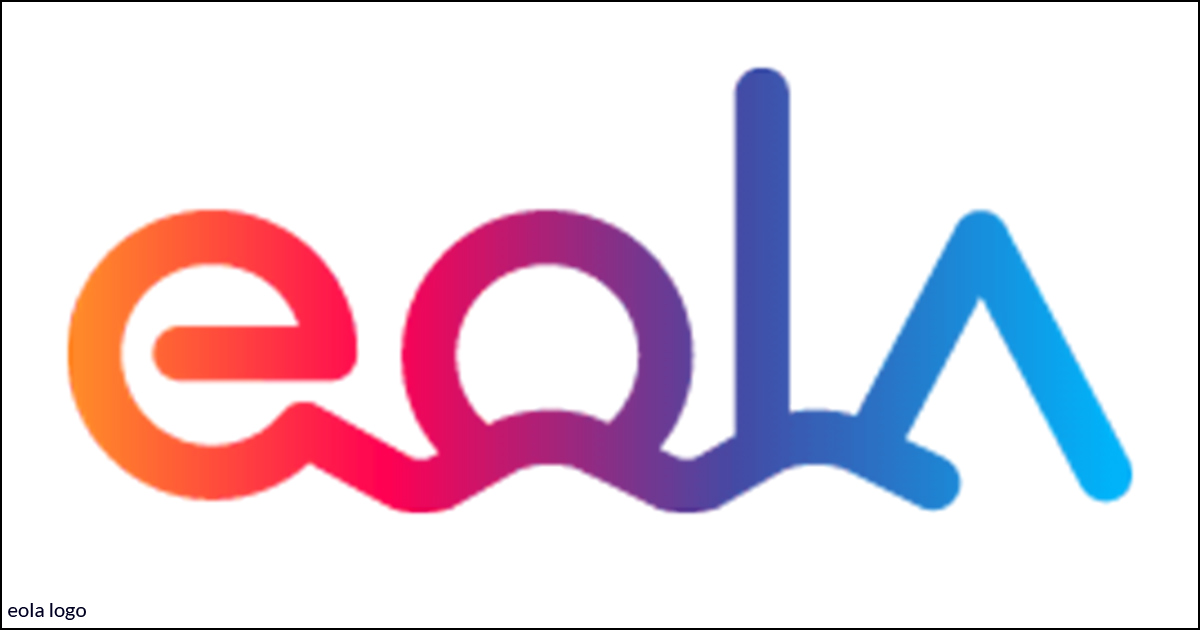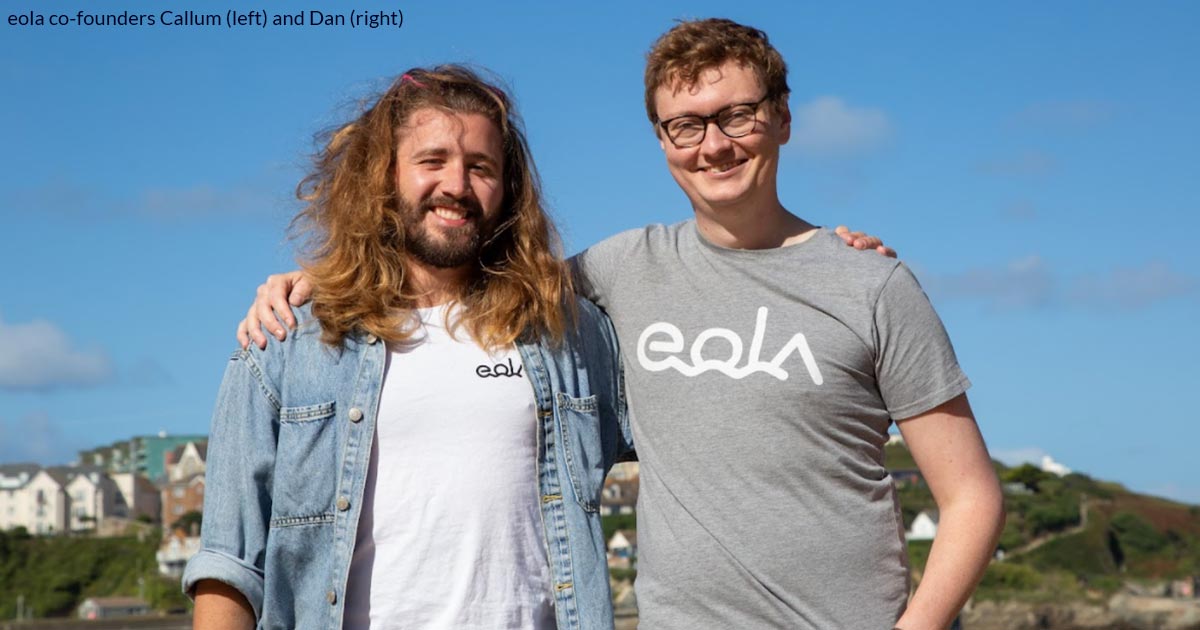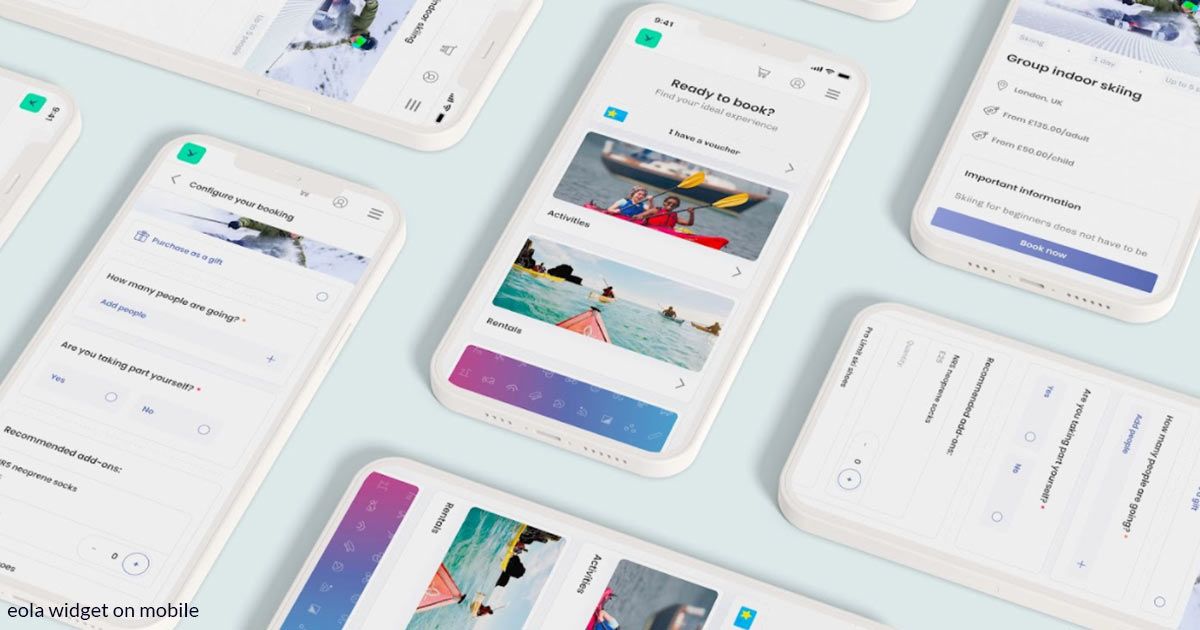eola Profile

Last Updated: By TRUiC Team
SaaS startup eola provides a top tier operating system for “experience” businesses to manage, automate, and digitize their operations to provide the best travel experiences possible.
Interview With Callum Hemsley
Describe your product or service:
“eola is an operating system for experience businesses. We enable them to digitise and automate their management processes, reducing their admin and helping them grow. In this way, we facilitate far greater participation across the experience industry. From complete beginners to seasoned participants alike, eola is the link between activity providers and the world of enthusiasts.”
Describe your company values and mission:
“‘eola’ means ‘to live’ in Hawaiian, and that’s right at the heart of who we are as a business. We are a team of passionate people, brought together by our mission to power the world of experiences. We want to bring this world of joy to as many as possible through simply beautiful technology and have already done so for hundreds of thousands of people around the world, working with hundreds of businesses.
Our story began on a beach, as so many great stories do. Not from an expert adventurer or elite athlete. It began from just another human trying surfing for the first time. It was cold, it was wet, and it was magnificent.
It was a defining moment of reflection on just how much delight came from experiences. Not just surfing. For so many, there is a defining activity that they love, from the extreme, like surfing, skiing, or biking, to the tranquil, like paddleboarding, or yoga, to the serene like pottery or cooking.
For those yet to find that moment, and those that haven’t had enough, and those who want to give those experiences to others, we wanted to find a way to make those experiences more accessible and empower the businesses who provide them.
eola is for the explorers, the adventures, the enthusiastic. eola is there to give hope and passion and a chance to live.”
How are you funded? I.e. venture capital, angel investors, etc.
“Previously, we have secured funding from a number of syndicates and angel investors, and in 2021, we secured a £2 million [$2.65 million] VC round led by Pentech Ventures.”
How big is your team? Tell us a little about them (I.e. co-founders, freelancers, etc.)
“I have a wonderful co-founder, Dan, who is our company's CTO. Our ethos as a company focuses on long-term, positive growth, and as such, we have only full-time, permanent employees. We prioritise build[ing] and maintain[ing] a very supportive company culture so we can grow together as a team, both professionally and personally. As of today, we have a team of 28 people, and we are looking to keep growing to about 34 by the end of 2021. This has expanded massively since January 2020, when there were only nine people in total.
Our team is made up of around 50% developers who all work remotely around the UK and internationally, and 50% commercial (divided into Marketing, Sales, and Partner Ops) based in our London office. Each team is expanding at a rapid pace as eola continues to grow.”
Did you always want to start your own business? What made you want to become an entrepreneur?
“Being an entrepreneur wasn't something I really knew anything about growing up.
After university, I had a hard time finding a role I was passionate about. After spending a summer looking for the right role, an invite to a startup event popped into my inbox. At the event, I met a business owner, and I spoke to him for a while about my struggle to find the right role. I told him how this had impacted my mental health and that I was incredibly frustrated.
As it transpired, he was the keynote speaker at the event. At no point during our conversation had he told me that he was the founder of a billion-dollar company. When I realised, I was shocked and overwhelmed. But then I shifted, and I realised how wonderful it was that this incredible person just listened to me, a complete stranger, for half an hour when he was there to do such important and incredible work.
I instinctively felt I wanted to work with people like that. I wanted to be in a community where the people are so humble, so interesting, and so fantastic. So, I got home, and from that event, I discovered ‘Work in Startups,’ a website where startups list their job opportunities. I immediately started hunting for roles and learning as much as I could about the tech startup industry.
I went on to see how wonderful being part of a growing company was. It was full of people deeply passionate about what they were doing and enjoying every second of it, and that made me certain this was where I wanted to be.”
How did you come up with your startup idea? How did you decide to actually act on the idea? What gave you confidence that you were on the right track?
“When Dan and I joined forces as co-founders of eola in 2017, it was because of our understanding of the real need for a simple, fast, and accessible online solution for experience providers.
I originally came up with the idea of making adventure activities more accessible after going surfing in Scarborough. After having a delightful time, I couldn’t wait to take part in more activities like that. I was genuinely shocked to see how difficult it was to find more adventures to go on and book them online. So, I decided to find a solution to this.
My co-founder, Dan, and I realised pretty rapidly that the main reason that the huge, multi-hundred billion-dollar activities industry is primarily offline is due to lack of decent tools and automation. We were going to change that.
As we started to build up our partner numbers, [we began] getting feedback from businesses telling us how much time eola had saved them and how much it had improved their operations and allowed them to go back to the activities they loved. That was when we knew we were on the right track.”
How did you come up with your company name? Did you have other names you considered?
“We originally had about 10 A4 pieces of paper filled with potential names. We looked at everything from animal-inspired names to names from ancient civilisations.
One day, I was researching verb conjugations in different languages, and Hawaiian stood out to me as a great language option. So I typed up ‘to live’ in Hawaiian, and it came up with ‘eola.’ I was delighted! It was the embodiment of everything we wanted to do as a company.”
Feeling inspired? Learn how to launch your company with our guide on how to start a startup.
What is the greatest challenge you faced in starting your business, and how did you overcome it?
“There are so many different challenges, but, mainly when you are building a business, there is no one to tell you what is right or wrong, particularly in the first few years. You simply have no idea what is going to happen next.
All sensible advice tells you to stop before you over-expose yourself to risk, and I would always advise that to everyone. Yet, when we started, at every stage of eola’s journey, we were at a point where we were running out of money. At different points we have just been fighting and fighting for the business to survive.
It took two years for us to officially launch the product. And all through that time we thought there would be an obvious point to move forward or to stop. When we were finally nearing the end of all our money, we suddenly started to see bookings come through and business starting to grow. We were personally on the edge of financial ruin, and that was the point an investor reached out to us.
The whole time you are asking yourself, am I being arrogant, naive, or just persistent? And the only one who can answer that is yourself. Ultimately, you’ve got to work that out. Are you doing the right thing?”
Who is your product or service made for? Who is your target market?
“Our target market is experience and activity providers. Our main customer base is water and land-based sports. But many workshops and other activity providers, such as tours and cooking classes, have made use of our system.”
What's your marketing strategy?
“During the first years, we focused on getting to know our target market, solidifying our business strategy, and doing manual reach-outs to new potential partners to test the waters. After the initial period of understanding the market and our customers properly, we hired a head of marketing to start building a more active marketing strategy. We were in a pretty classic startup position, where we would love to do big, splashy marketing campaigns but were on a shoestring budget. Luckily, there’s a lot of things we could do on minimal marketing expenses.
To raise awareness, add value, and increase bookings for our partners, we’ve focused heavily on producing high-quality B2C content across our blog and social media channels. We promote our partners and their activities in many ways, from exclusive interview features, activity inspiration posts to direct ‘book now’ ads. Additionally, we create content for our partners, including tips and tricks on how to increase bookings, optimise your website, and reach new markets.
This focus on putting our customers at the centre of our business leads to referrals and great word-of-mouth effects. Combined with low-cost digital B2B campaigns and a strong focus on SEO, this strategy has created a steady stream of inbound lead generation. This has all worked wonders on a modest budget. Though we’re looking forward to being able to do more with greater resources, we believe that the real value will always come from keeping our customers at the centre of our business and us growing together.
Since our latest fundraise in Spring 2021, we have been able to ramp up our marketing operations. We've been able to grow our team, our content numbers, and the added value we can give our partners. Additionally, we have an increased focus on building partnerships, such as our collaboration with UK snowsport organisations and our sponsorship of the eola GBR ski series. Doing this has heightened the visibility of our brand while enabling us to work to increase participation and accessibility for activities and experiences.”
How did you acquire your first 100 customers?
“We started by building and procuring contact lists of highly relevant experience providers, so we could focus on a personal sales approach.
Here we reached out to businesses to understand what they needed and created a list of people who could test our system. Building a fantastic platform and listening to what could be improved, our personal approach and relationship building all meant we received lots of new customers by referral. The sales team continued to build relationships with businesses across the industry, from small one-person operations to enterprise businesses, and continued to onboard partners and build lasting links with business owners.”
What are the key customer metrics / unit economics / KPIs you pay attention to monitor the health of your business?
“Firstly, we track our customer booking volume to see how they grow and what benefits we bring businesses when they decide to use our platform. This is our north star, meaning it influences everything we do. If we see that this number is increasing, it means that we are seeing our partners grow and revenue increase. This also allows us to track how our marginal costs and revenue are interacting so we can ensure that the cost base remains stable and the gap between our expenditure and revenue continues to positively expand.
We also track our partner numbers constantly — and run satisfaction checks on each of our partners to look at what our partners love and what we can improve. Additionally, we track our booking numbers and revenue which rapidly grows as our partner numbers expand.
One thing we are extremely keen to avoid is vanity metrics. These are metrics that may sound great and can be extremely positive but overall don’t actually impact the success of the business in the long term. An example would be traffic on our website. While this is great to see, if traffic does not lead to conversions, this metric is not useful for us.”
What's your favorite entrepreneurial book and podcast?
“I actually have had the same two favourite books for a very long time, which are ‘The Hard Thing About Hard Things’ by Ben Horowitz, and ‘0 to 1’ by Blake Masters and Peter Thiel. Both are extremely powerful reads for founders.
‘The Hard Thing About Hard Things’ highlights the fact that everyone is accountable for their own decisions, and while you have an amazing advisory network, you’ve got to really work out what is the right thing for you.
‘Zero to One’ is about the importance of building highly significantly better products rather than iteratively better products. They are great books.”
What is something that surprised you about entrepreneurship?
“I always thought people knew exactly what they were doing as founders. But the more entrepreneurs I meet, the more I realise that everyone is learning as they grow.
I have met even very late-stage founders and serial entrepreneurs who say they have to keep learning as they go along and hope that what they are doing and the choices they are making are the correct ones.
That is humbling to know because you realise that there is no set path or road to follow. Every single journey is unique.”
How do you achieve work/life balance as a founder?
“I think it’s really important that you strike that balance, whatever that looks like for you. There will of course be periods of high intensity in your role, but ultimately, you are a resource for the business, and if you overwork yourself, you will burn yourself out, which isn’t good for anyone.
You need to take time for yourself. Yes, there is always that important work you have to do today, but it will be there when you come back.
I think too many founders think you have to spend 18 hours a day every day to achieve success, but I tend to think it’s about being efficient and building something the right way. And so I have always had that ethos.”
How do you stay motivated?
“Typically, in any job, motivation is driven by your manager. But when you’re CEO, there’s no one really to fill that role.
You can go to your board and tell them that you are struggling, and they will be there to support you, but ultimately, you’ve got to be your own source of motivation, your own source of willpower.
I think a lot of the time for me, I find motivation from the team. Looking around and seeing all these incredible people means that you’re always fighting the good fight. And when you look at your customers, and you see the amazing things that they’re doing and the way they are relying on you, it really pushes you forward.
Any time I feel stressed or down, I can just look around and see all this wonderfulness, and it gives me all the motivation I need.”
Did you have to develop any habits that helped lead you to success? If so, what are they?
“I quickly learned a very important lesson which you need to learn as a founder: discipline. You need to be utterly disciplined at all times. There is no one to push you, no one to drive you. So at any single time, whatever the job is, you can put it off. Getting into the habit of just picking those grueling tasks up and getting them done is one of the most important things you will learn. It taught me rigorous self-control and discipline.”
What are you most proud of as an entrepreneur?
“The team.
One of the things that is truly wonderful for my co-founder Dan and me, is that whenever we come into the office, see the team and our customers talking about eola, it makes us both undoubtedly proud.
Seeing meetings take place between departments and seeing conversations revolve around something that started as an idea between you both years ago is incredible. It rapidly becomes something that you no longer own.
eola started as something that belonged to me and Dan, but now it belongs to a team, and each person has singular ownership of it. It's the best feeling.”
Recommended:
- Keep up with more startup companies by visiting our list of the top startups to watch.
- Hear startup stories from real founders on the Startup Savants podcast.
- Form your own startup by reading our review of the best online incorporation services.
Tell Us Your Startup Story
Are you a startup founder and want to share your entrepreneurial journey with our readers? Click below to contact us today!
More on eola

Insights From the Founder of Travel Startup eola
We were fortunate enough to hear some valuable insights during our interview with Callum Hemsley of eola that will inspire, motivate, and teach aspiring and established entrepreneurs alike.

4 Ways to Support Travel Startup eola
We asked Callum Hemsley, founder of eola, to share the most impactful ways to support their startup, and this is what they had to say.


